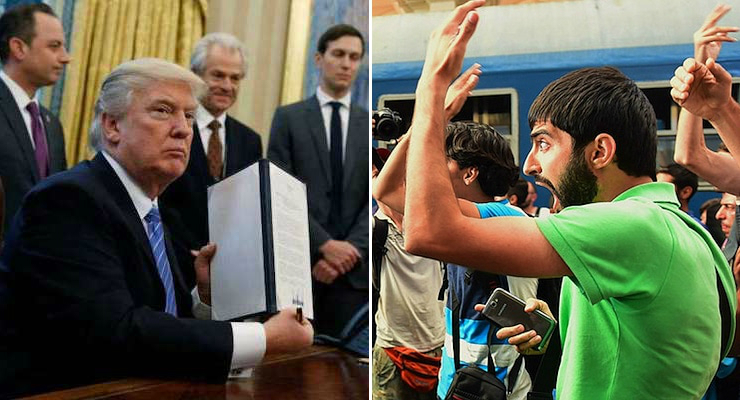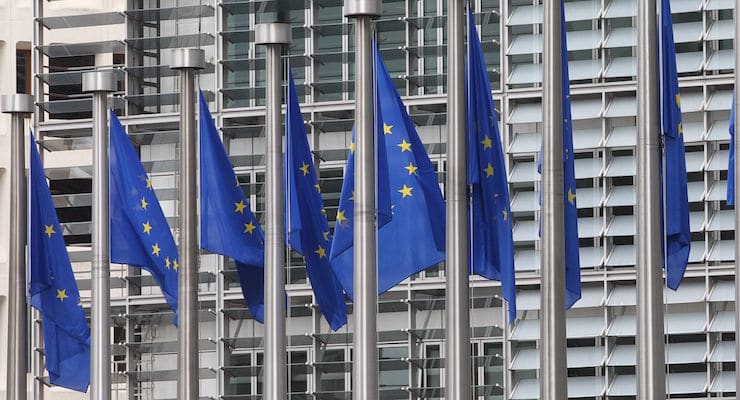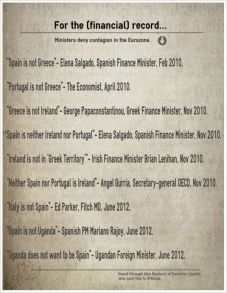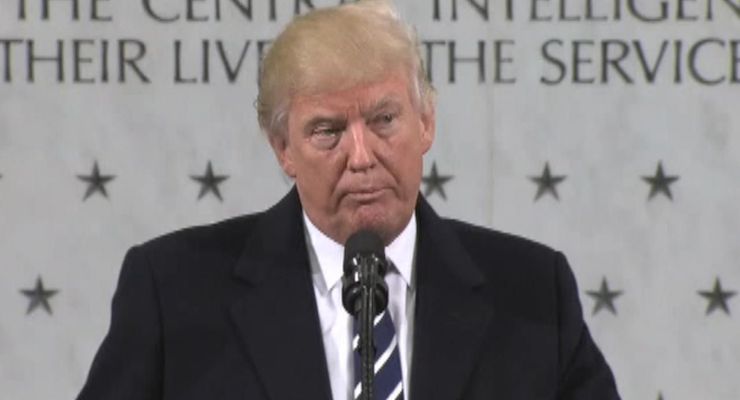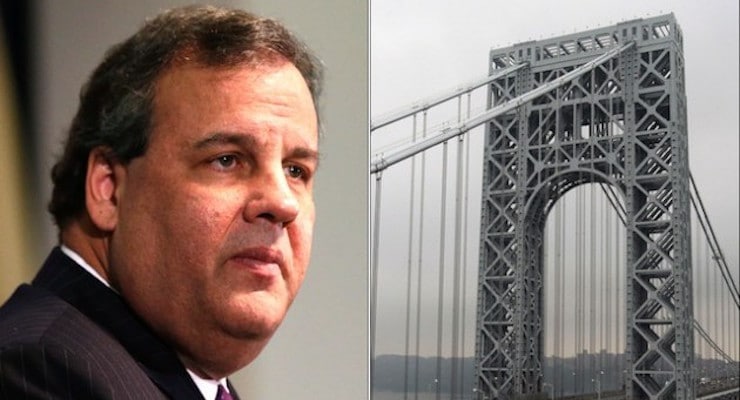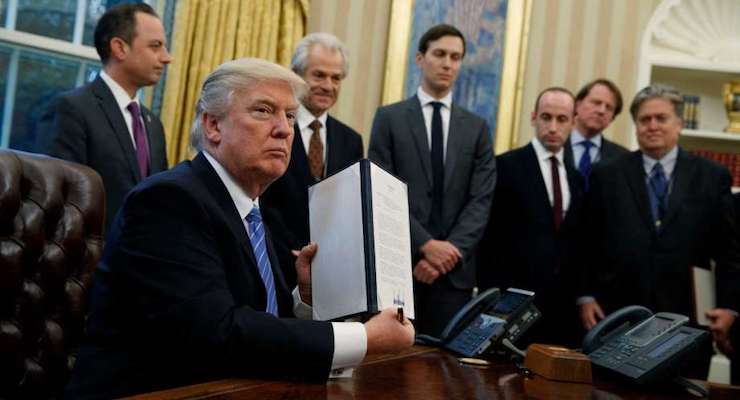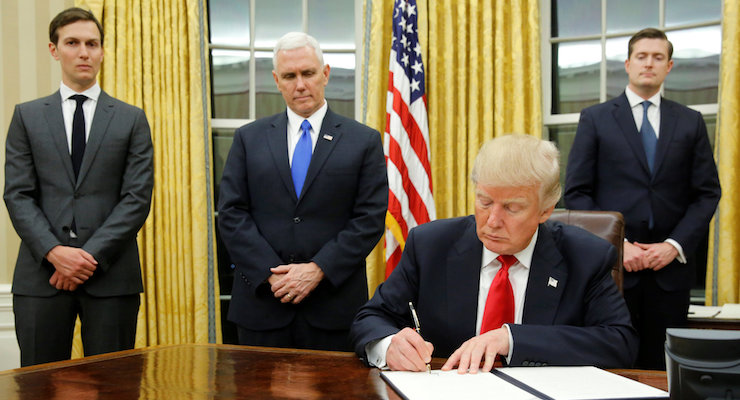
U.S. President Donald Trump, signs his first executive orders at the White House on Friday. Behind him, from left, are senior adviser Jared Kushner, Vice President Mike Pence and staff secretary Rob Porter. (Photo: Reuters)
President Donald J. Trump signed two executive orders on Saturday expanding the lobbying ban from 2 to 5 years and to restructure strategy to defeat Islamic State.
“It’s two years now and filled with loopholes,” President Trump said.
The order imposes a lifetime ban on administration officials lobbying for foreign governments, and a five-year ban for other lobbying. In the order, titled “ETHICS COMMITMENTS BY EXECUTIVE BRANCH APPOINTEES,” officials must now agree they “will not, within 5 years after the termination of my employment as an appointee in any executive agency in which I am appointed to serve, engage in lobbying activities with respect to that agency.”
The other order requires the Department of Department to submit a plan within 30 days to defeat ISIS.
ETHICS COMMITMENTS BY EXECUTIVE BRANCH APPOINTEES
By the authority vested in me as President of the United States by the Constitution and the laws of the United States of America, including section 301 of title 3, United States Code, and sections 3301 and 7301 of title 5, United States Code, it is hereby ordered as follows:
Section 1. Ethics Pledge. Every appointee in every executive agency appointed on or after January 20, 2017, shall sign, and upon signing shall be contractually committed to, the following pledge upon becoming an appointee:
“As a condition, and in consideration, of my employment in the United States Government in an appointee position invested with the public trust, I commit myself to the following obligations, which I understand are binding on me and are enforceable under law:
“1. I will not, within 5 years after the termination of my employment as an appointee in any executive agency in which I am appointed to serve, engage in lobbying activities with respect to that agency.
“2. If, upon my departure from the Government, I am covered by the post-employment restrictions on communicating with employees of my former executive agency set forth in section 207(c) of title 18, United States Code, I agree that I will abide by those restrictions.
“3. In addition to abiding by the limitations of paragraphs 1 and 2, I also agree, upon leaving Government service, not to engage in lobbying activities with respect to any covered executive branch official or non-career Senior Executive Service appointee for the remainder of the Administration.
“4. I will not, at any time after the termination of my employment in the United States Government, engage in any activity on behalf of any foreign government or foreign political party which, were it undertaken on January 20, 2017, would require me to register under the Foreign Agents Registration Act of 1938, as amended.
“5. I will not accept gifts from registered lobbyists or lobbying organizations for the duration of my service as an appointee.
“6. I will not for a period of 2 years from the date of my appointment participate in any particular matter involving specific parties that is directly and substantially related to my former employer or former clients, including regulations and contracts.
“7. If I was a registered lobbyist within the 2 years before the date of my appointment, in addition to abiding by the limitations of paragraph 6, I will not for a period of 2 years after the date of my appointment participate in any particular matter on which I lobbied within the 2 years before the date of my appointment or participate in the specific issue area in which that particular matter falls.
“8. I agree that any hiring or other employment decisions I make will be based on the candidate’s qualifications, competence, and experience.
“9. I acknowledge that the Executive Order entitled ‘Ethics Commitments by Executive Branch Appointees,’ issued by the President on January 28, 2017, which I have read before signing this document, defines certain terms applicable to the foregoing obligations and sets forth the methods for enforcing them. I expressly accept the provisions of that Executive Order as a part of this agreement and as binding on me. I understand that the obligations of this pledge are in addition to any statutory or other legal restrictions applicable to me by virtue of Government service.”
Sec. 2. Definitions. As used herein and in the pledge set forth in section 1 of this order:
(a) “Administration” means all terms of office of the incumbent President serving at the time of the appointment of an appointee covered by this order.
(b) “Appointee” means every full-time, non-career Presidential or Vice-Presidential appointee, non-career appointee in the Senior Executive Service (or other SES-type system), and appointee to a position that has been excepted from the competitive service by reason of being of a confidential or policymaking character (Schedule C and other positions excepted under comparable criteria) in an executive agency. It does not include any person appointed as a member of the Senior Foreign Service or solely as a uniformed service commissioned officer.
(c) “Covered executive branch official” shall have the definition set forth in the Lobbying Disclosure Act.
(d) “Directly and substantially related to my former employer or former clients” shall mean matters in which the appointee’s former employer or a former client is a party or represents a party.
(e) “Executive agency” and “agency” mean “executive agency” as defined in section 105 of title 5, United States Code, except that the terms shall include the Executive Office of the President, the United States Postal Service, and the Postal Regulatory Commission, and excludes the Government Accountability Office. As used in paragraph 1 of the pledge, “executive agency” means the entire agency in which the appointee is appointed to serve, except that:
(1) with respect to those appointees to whom such designations are applicable under section 207(h) of title 18, United States Code, the term means an agency or bureau designated by the Director of the Office of Government Ethics under section 207(h) as a separate department or agency at the time the appointee ceased to serve in that department or agency; and
(2) an appointee who is detailed from one executive agency to another for more than 60 days in any calendar year shall be deemed to be an officer or employee of both agencies during the period such person is detailed.
(f) “Foreign Agents Registration Act of 1938, as amended” means sections 611 through 621 of title 22, United States Code.
(g) “Foreign government” means the “government of a foreign country,” as defined in section 1(e) of the Foreign Agents Registration Act of 1938, as amended, 22 U.S.C. 611(e).
(h) “Foreign political party” has the same meaning as that term has in section 1(f) of the Foreign Agents Registration Act of 1938, as amended, 22 U.S.C. 611(f).
(i) “Former client” is any person for whom the appointee served personally as agent, attorney, or consultant within the 2 years prior to the date of his or her appointment, but excluding instances where the service provided was limited to a speech or similar appearance. It does not include clients of the appointee’s former employer to whom the appointee did not personally provide services.
(j) “Former employer” is any person for whom the appointee has within the 2 years prior to the date of his or her appointment served as an employee, officer, director, trustee, or general partner, except that “former employer” does not include any executive agency or other entity of the Federal Government, State or local government, the District of Columbia, Native American tribe, or any United States territory or possession.
(k) “Gift”
(1) shall have the definition set forth in section 2635.203(b) of title 5, Code of Federal Regulations;
(2) shall include gifts that are solicited or accepted indirectly as defined at section 2635.203(f) of title 5, Code of Federal Regulations; and
(3) shall exclude those items excluded by sections 2635.204(b), (c), (e)(1) & (3), (j), (k), and (l) of title 5, Code of Federal Regulations.
(l) “Government official” means any employee of the executive branch.
(m) “Lobbied” shall mean to have acted as a registered lobbyist.
(n) “Lobbying activities” has the same meaning as that term has in the Lobbying Disclosure Act, except that the term does not include communicating or appearing with regard to: a judicial proceeding; a criminal or civil law enforcement inquiry, investigation, or proceeding; or any agency process for rulemaking, adjudication, or licensing, as defined in and governed by the Administrative Procedure Act, as amended, 5 U.S.C. 551 et seq.
(o) “Lobbying Disclosure Act” means sections 1601 et seq. of title 2, United States Code.
(p) “Lobbyist” shall have the definition set forth in the Lobbying Disclosure Act.
(q) “On behalf of another” means on behalf of a person or entity other than the individual signing the pledge or his or her spouse, child, or parent.
(r) “Particular matter” shall have the same meaning as set forth in section 207 of title 28, United States Code, and section 2635.402(b)(3) of title 5, Code of Federal Regulations.
(s) “Particular matter involving specific parties” shall have the same meaning as set forth in section 2641.201(h) of title 5, Code of Federal Regulations, except that it shall also include any meeting or other communication relating to the performance of one’s official duties with a former employer or former client, unless the communication applies to a particular matter of general applicability and participation in the meeting or other event is open to all interested parties.
(t) “Participate” means to participate personally and substantially.
(u) “Pledge” means the ethics pledge set forth in section 1 of this order.
(v) “Post-employment restrictions” shall include the provisions and exceptions in section 207(c) of title 18, United States Code, and the implementing regulations.
(w) “Registered lobbyist or lobbying organization” shall mean a lobbyist or an organization filing a registration pursuant to section 1603(a) of title 2, United States Code, and in the case of an organization filing such a registration, “registered lobbyist” shall include each of the lobbyists identified therein.
(x) Terms that are used herein and in the pledge, and also used in section 207 of title 18, United States Code, shall be given the same meaning as they have in section 207 and any implementing regulations issued or to be issued by the Office of Government Ethics, except to the extent those terms are otherwise defined in this order.
(y) All references to provisions of law and regulations shall refer to such provisions as in effect on January 20, 2017.
Sec. 3. Waiver. (a) The President or his designee may grant to any person a waiver of any restrictions contained in the pledge signed by such person.
(b) A waiver shall take effect when the certification is signed by the President or his designee.
(c) A copy of the waiver certification shall be furnished to the person covered by the waiver and provided to the head of the agency in which that person is or was appointed to serve.
Sec. 4. Administration. (a) The head of every executive agency shall establish for that agency such rules or procedures (conforming as nearly as practicable to the agency’s general ethics rules and procedures, including those relating to designated agency ethics officers) as are necessary or appropriate:
(1) to ensure that every appointee in the agency signs the pledge upon assuming the appointed office or otherwise becoming an appointee; and
(2) to ensure compliance with this order within the agency.
(b) With respect to the Executive Office of the President, the duties set forth in section 4(a) shall be the responsibility of the Counsel to the President or such other official or officials to whom the President delegates those duties.
(c) The Director of the Office of Government Ethics shall:
(1) ensure that the pledge and a copy of this Executive Order are made available for use by agencies in fulfilling their duties under section 4(a);
(2) in consultation with the Attorney General or Counsel to the President, when appropriate, assist designated agency ethics officers in providing advice to current or former appointees regarding the application of the pledge; and
(3) adopt such rules or procedures (conforming as nearly as practicable to its generally applicable rules and procedures) as are necessary or appropriate:
(i) to carry out the foregoing responsibilities;
(ii) to apply the lobbyist gift ban set forth in paragraph 5 of the pledge to all executive branch employees;
(iii) to authorize limited exceptions to the lobbyist gift ban for circumstances that do not implicate the purposes of the ban;
(iv) to make clear that no person shall have violated the lobbyist gift ban if the person properly disposes of a gift as provided by section 2635.206 of title 5, Code of Federal Regulations;
(v) to ensure that existing rules and procedures for Government employees engaged in negotiations for future employment with private businesses that are affected by their official actions do not affect the integrity of the Government’s programs and operations; and
(vi) to ensure, in consultation with the Director of the Office of Personnel Management, that the requirement set forth in paragraph 8 of the pledge is honored by every employee of the executive branch;
(d) An appointee who has signed the pledge is not required to sign the pledge again upon appointment or detail to a different office, except that a person who has ceased to be an appointee, due to termination of employment in the executive branch or otherwise, shall sign the pledge prior to thereafter assuming office as an appointee.
(e) All pledges signed by appointees, and all waiver certifications with respect thereto, shall be filed with the head of the appointee’s agency for permanent retention in the appointee’s official personnel folder or equivalent folder.
Sec. 5. Enforcement. (a) The contractual, fiduciary, and ethical commitments in the pledge provided for herein are solely enforceable by the United States by any legally available means, including any or all of the following: debarment proceedings within any affected executive agency or civil judicial proceedings for declaratory, injunctive, or monetary relief.
(b) Any former appointee who is determined, after notice and hearing, by the duly designated authority within any agency, to have violated his or her pledge may be barred from engaging in lobbying activities with respect to that agency for up to 5 years in addition to the 5-year time period covered by the pledge. The head of every executive agency shall, in consultation with the Director of the Office of Government Ethics, establish procedures to implement this subsection, which shall include (but not be limited to) providing for factfinding and investigation of possible violations of this order and for referrals to the Attorney General for his or her consideration pursuant to subsection (c).
(c) The Attorney General or his or her designee is authorized:
(1) upon receiving information regarding the possible breach of any commitment in a signed pledge, to request any appropriate Federal investigative authority to conduct such investigations as may be appropriate; and
(2) upon determining that there is a reasonable basis to believe that a breach of a commitment has occurred or will occur or continue, if not enjoined, to commence a civil action on behalf of the United States against the former officer or employee in any United States District Court with jurisdiction to consider the matter.
(d) In such civil action, the Attorney General or his or her designee is authorized to request any and all relief authorized by law, including but not limited to:
(1) such temporary restraining orders and preliminary and permanent injunctions as may be appropriate to restrain future, recurring, or continuing conduct by the former officer or employee in breach of the commitments in the pledge he or she signed; and
(2) establishment of a constructive trust for the benefit of the United States, requiring an accounting and payment to the United States Treasury of all money and other things of value received by, or payable to, the former officer or employee arising out of any breach or attempted breach of the pledge signed by the former officer or employee.
Sec. 6. General Provisions. (a) This order supersedes Executive Order 13490 of January 21, 2009 (Ethics Commitments by Executive Branch Personnel), and therefore Executive Order 13490 is hereby revoked. No other prior Executive Orders are repealed by this order. To the extent that this order is inconsistent with any provision of any prior Executive Order, this order shall control.
(b) If any provision of this order or the application of such provision is held to be invalid, the remainder of this order and other dissimilar applications of such provision shall not be affected.
(c) The pledge and this order are not intended to, and do not, create any right or benefit, substantive or procedural, enforceable at law or in equity by any party (other than by the United States) against the United States, its departments, agencies, or entities, its officers, employees, or agents, or any other person.
(d) The definitions set forth in this order are solely applicable to the terms of this order, and are not otherwise intended to impair or affect existing law.
(e) Nothing in this order shall be construed to impair or otherwise affect:
(1) the authority granted by law to an executive department, agency, or the head thereof; or
(2) the functions of the Director of the Office of Management and Budget relating to budgetary, administrative, or legislative proposals.
(f) This order shall be implemented consistent with applicable law and subject to the availability of appropriations.
DONALD J. TRUMP
President Donald J. Trump signed executive orders


